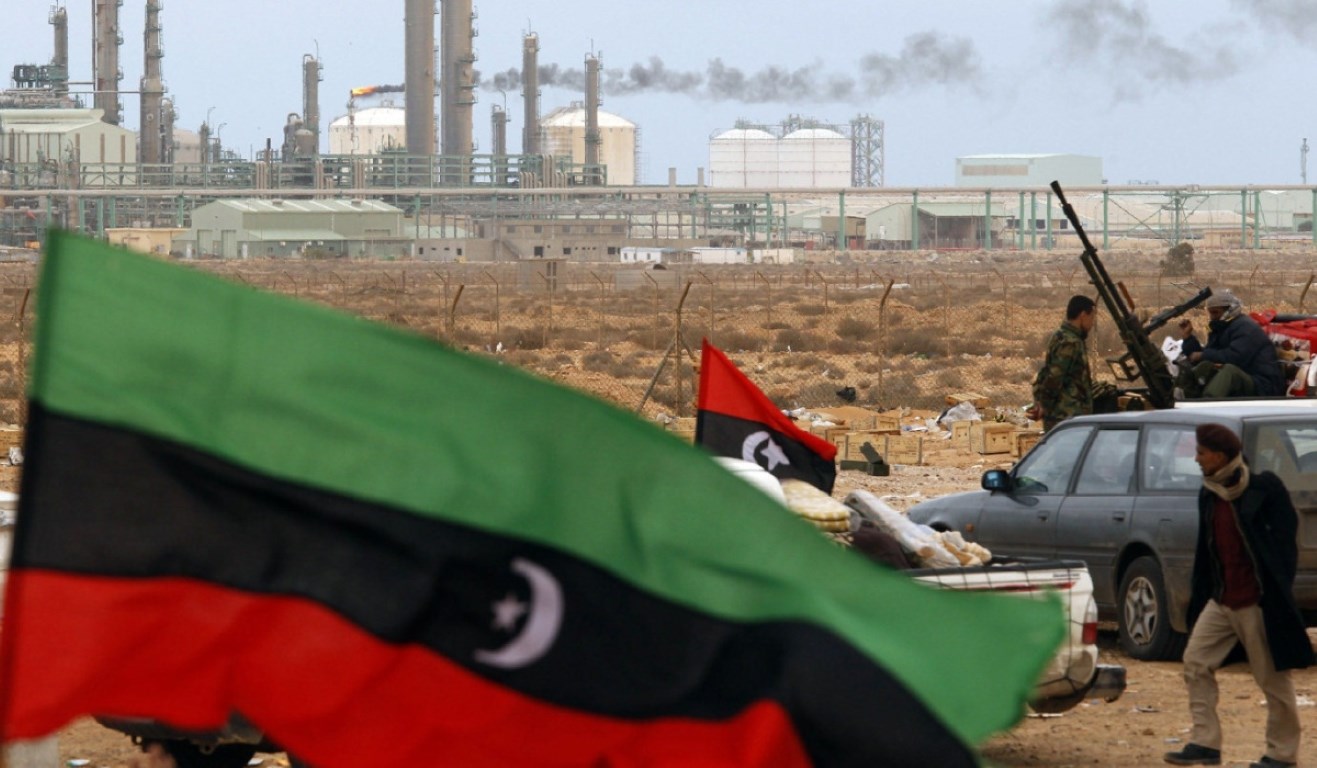Reopened Libyan Oil Terminals Trigger Price Decline
July 13, 2018 | Expert Insights

The National Oil Corporation (NOC) announced the re-opening of oil terminals in Eastern Libya after renegade General Khalifa Haftar agreed to hand over control of the ports.
Brent crude suffered the biggest price decline in two years after it dropped by 6.9% to $73.40 per barrel.
Background
Libya has been in a state of political unrest since the former President of Libya, Muammar Gaddafi was killed in 2011. The two rival factions in Libya, General National Congress (GNC) under Nouri Abusahmain in Tripoli and the 2014 democratically elected
House of Representative (HOR) in Tobruk under Aguila Saleh Issa, are currently in a tussle to assume total power over the state. Internationally, it is the Tobruk government that has been recognized as the official government in Libya.
The HOR, strongest in eastern Libya, enjoys the support of the Libyan National Army and has received support from Egypt and UAE. While the GNC is backed by Sudan, Turkey and Qatar. Tobruk is being backed by a military group called Operation Dignity, which is a coalition of eastern tribes and Tripoli has the support of Operation Dawn, an alliance of Islamic forces.
Neither of the rival groups has been able to gain full territorial control or gather popular support. The real power lies with the armed groups that have taken over political order and essentially also the law. Islamic extremism has been present in the eastern provinces.
The Ras Lanuf and Es Sidr oil terminals have been closed since late June 2018 when armed groups attacked oil facilities held by forces loyal to renegade General Khalifa Haftar in eastern Libya. Haftar's Libyan National Army has since launched an offensive to push rival militias out of the area.
Analysis
All oil exports from Libya's eastern al-Hariga and Zweitina seaports were suspended after the National Oil Corporation declared Force Majeure, a legal waiver on contractual obligations, on the crude oil holdings on 2 July. The Tripoli-based National Oil Corporation (NOC) said it would resume operations and trade from the four ports in Eastern Libya.
Ahmad al-Mesmari, a spokesperson for Haftar had earlier said that proceeds from oil sales would go to the Tobruk-based government through a rival NOC in the East. The internationally-recognised GNA, based in Tripoli, were thus prompted to refer the case to the UN Security Council as oil-facilities were to remain under the GNA’s exclusive control as deemed by a resolution.
Conflict between rival factions and governments led to a collapse in the country's oil production, slashing output by as much as 850,000 barrels a day and costing the economy an estimated $1 billion. An increase of 700,000 barrels are expected to enter the oil market after Libyan production resumes.
"It is at the heart of the recent crisis, the real solution is transparency. Libyan citizens should be able to see how their wealth is spent,” said NOC chairman Mustafa Sanallah who commended Gen. Haftar’s move. He noted that the rival firm had neither the legal authority nor technical ability to handle the oil revenues.
Oil prices have been volatile since the Trump administration announced that they would reinstate sanctions on Iran’s oil sector after withdrawing from the Iran Nuclear Deal. Meeting at the OPEC summit, major oil producing nations, including Libya and Iran, agreed to only marginally increase output after compromising between US pressure and needs of Iran, Libya and Venezuela. OPEC president Suhail Al-Mazrouei said volatility in oil prices was not desirable.
A US government report indicated that American crude oil stockpiles fell by more than 12 million barrels last week and are about 4% lower than average. US has been pushing for higher output for lower pricing as trade tensions have escalated globally.
In late May, rival factions in Libya, including General Haftar, agreed to hold parliamentary and presidential elections on 10 December. The four groups also agreed to adopt the necessary laws by mid-September. A new electoral law would have to be agreed upon and a referendum on a constitution held before national polls. However, presidential elections will be delayed until next year.
Assessment
Our assessment is that the full effects of resuming oil exports from Libya may be felt in the markets for a while. We believe that by returning the oil terminals, eastern leader General Haftar has expressed his desire to abide by democratic processes for a more stable Libya.








Comments